A Common and PTSD-Inducing Myth About Autistic Behavior
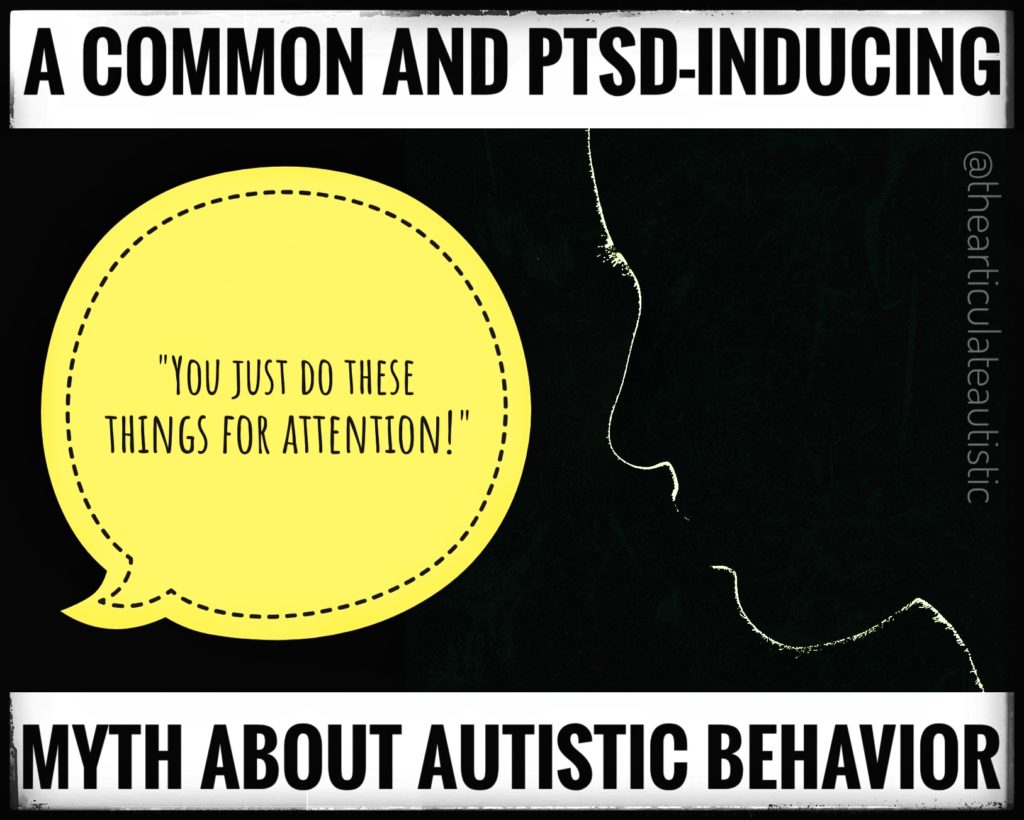
Doing things for attention. Oh, dear God. Just…no. I’d love to be all professional and articulate about this one, but I can’t be.
This accusation fills me with so many mixed emotions (terror, confusion, rage, disbelief, and more) that it’s hard to even get this post started.
I have heard that statement or a variation thereof so many times during my life, it would be almost laughable if invalidation wasn’t one of the primary reasons for my PTSD.
I’ve heard it from family, teachers, doctors, and even total strangers.
But here’s the real kick in the pants:
I hate attention. Hate it. I want to crawl into a hole and disappear whenever too many eyes are on me at once.
(You folks are fine since I can’t feel your actual eyes on me, you’re just reading my words. Wonderful medium, writing.)
But, when the room suddenly gets quiet and all eyes are on me, I want to turn inside out and disappear.
And, throughout my entire life, people mockingly gave me the “attention” they thought I was begging for with my unintentionally awkward behavior, thus confusing and traumatizing me.
See, they had the playbook, I didn’t. Apparently, I was giving off all sorts of “wrong” and mixed signals that mean one thing in autistic and another in non-autistic, only I didn’t know I was speaking a different neurological language!
(Article continues below.)
The best way to improve communication with your autistic loved one is to understand how your autistic loved one’s mind works! Intentions, motivations, and personal expressions (facial expressions or lack thereof, body language, etc.), are often quite different in autistic people than they are in neurotypical people.
Experience a better understanding of your autistic loved one by reading books about life from an autistic perspective as well as stories that feature autistic characters. You’ll have so many “Ah ha!” moments and start seeing your autistic loved one in a different light (and you’ll have a better understanding of their behaviors, which you may have been misinterpreting up until now).
Books I recommend for a better understanding of your autistic loved one:
It took me until my early 30s to even fully grasp that some people actually do things just to get attention. I can’t fathom that. Attention for the sake of attention? That makes about as much sense to me as cruelty for the sake of cruelty. Why? It just doesn’t compute.
I sincerely believe many autistic people dislike and/or do their best to avoid attention and detection. It’s why so many of us learn to mask. We’re trying to get as much attention OFF of us as possible as quickly as possible!
If you’re non-autistic, and you’ve ever thought or said that your autistic loved one is “doing it for attention”, investigate that belief thoroughly.
Does your autistic loved one seem confused and surprised when everyone is suddenly staring at them or upset with them? Do they do what they can to stay out of the spotlight, so to speak, in most other situations?
Then they are NOT doing things for attention. They are simply being themselves, and they are unaware that the people around them are misinterpreting their behavior until, suddenly and horrifyingly, all eyes are on them.
If you’re having difficulty understanding this as a neurotypical person, picture this:
You’ve got ear buds in, and you’re dancing around your kitchen to your favorite song while you clean. You’re in a skimpy outfit because it’s hot out, and you’re using ALL YOUR MOVES, even some of your bedroom ones. 😉
Suddenly, you turn around mid-twerk and see that your great aunt Edna, your very religious and conservative Aunt Edna, is holding a pie while staring in your window, AND, she’s brought the whole darn family!!
That level of embarrassment? Imagine feeling that almost every time you’re around more than two people, and you have no idea WHY it’s happening!
This is the autistic experience.
Follow me on Instagram.
Want downloadable, PDF-format copies of these blog posts to print and use with your loved ones or small class? Click here to become a Patreon supporter!


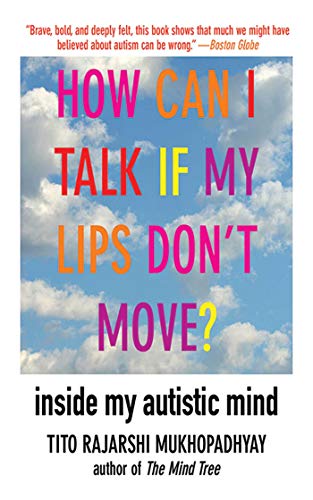

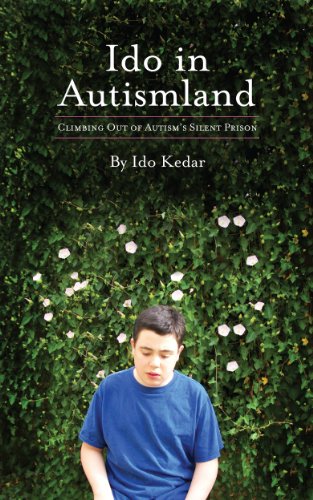
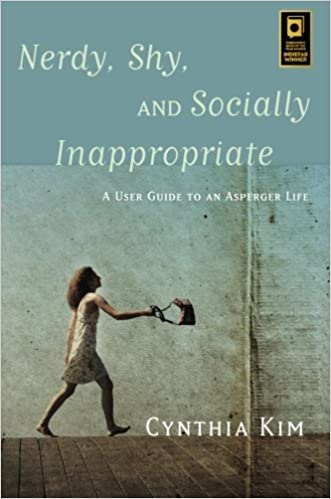
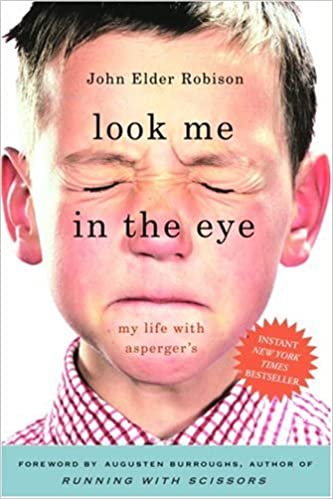




1 Response
[…] I can tell you with absolute certainty that doing this to your autistic loved one will cause them PTSD and/or other lasting mental health problems in the […]